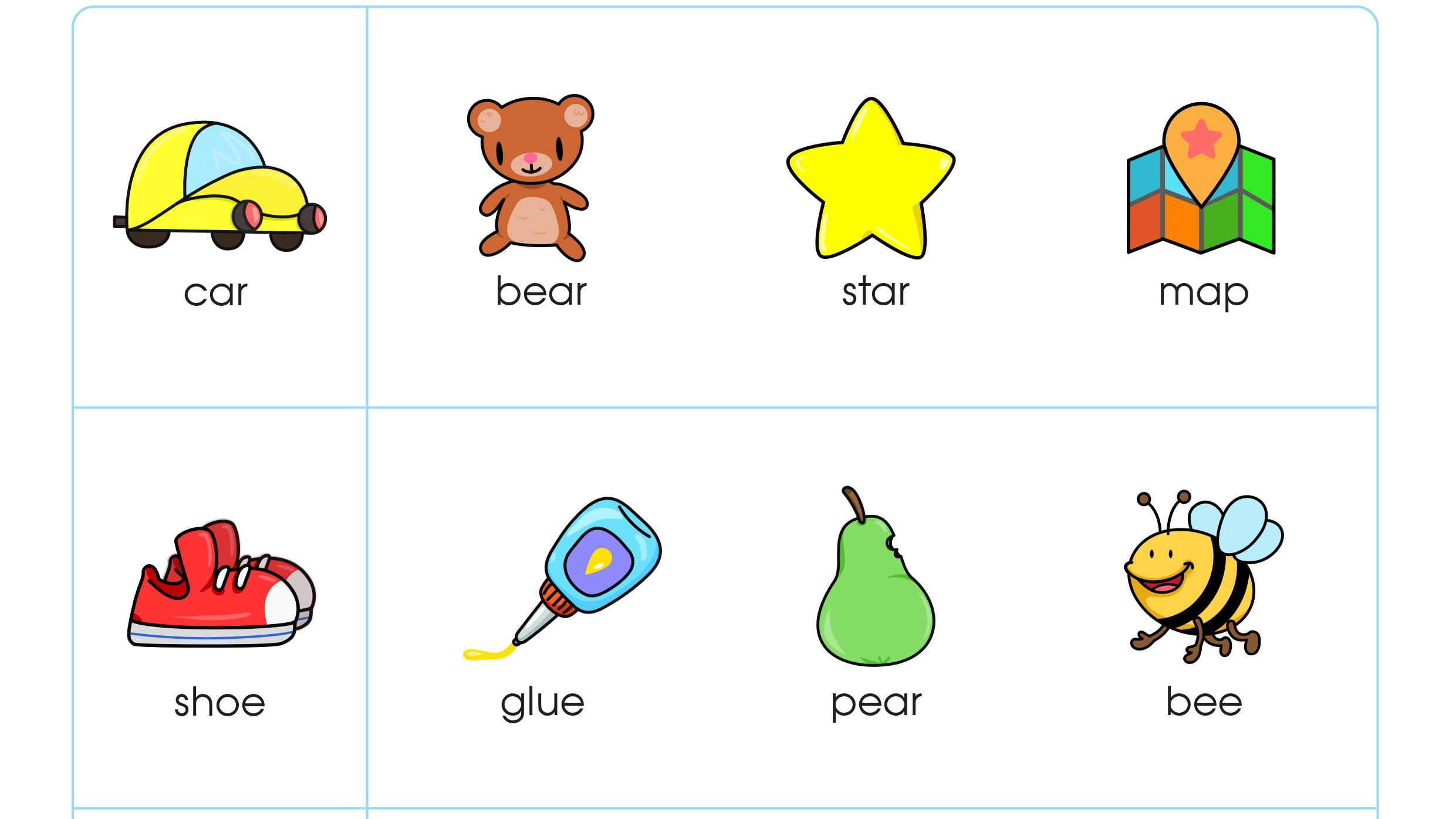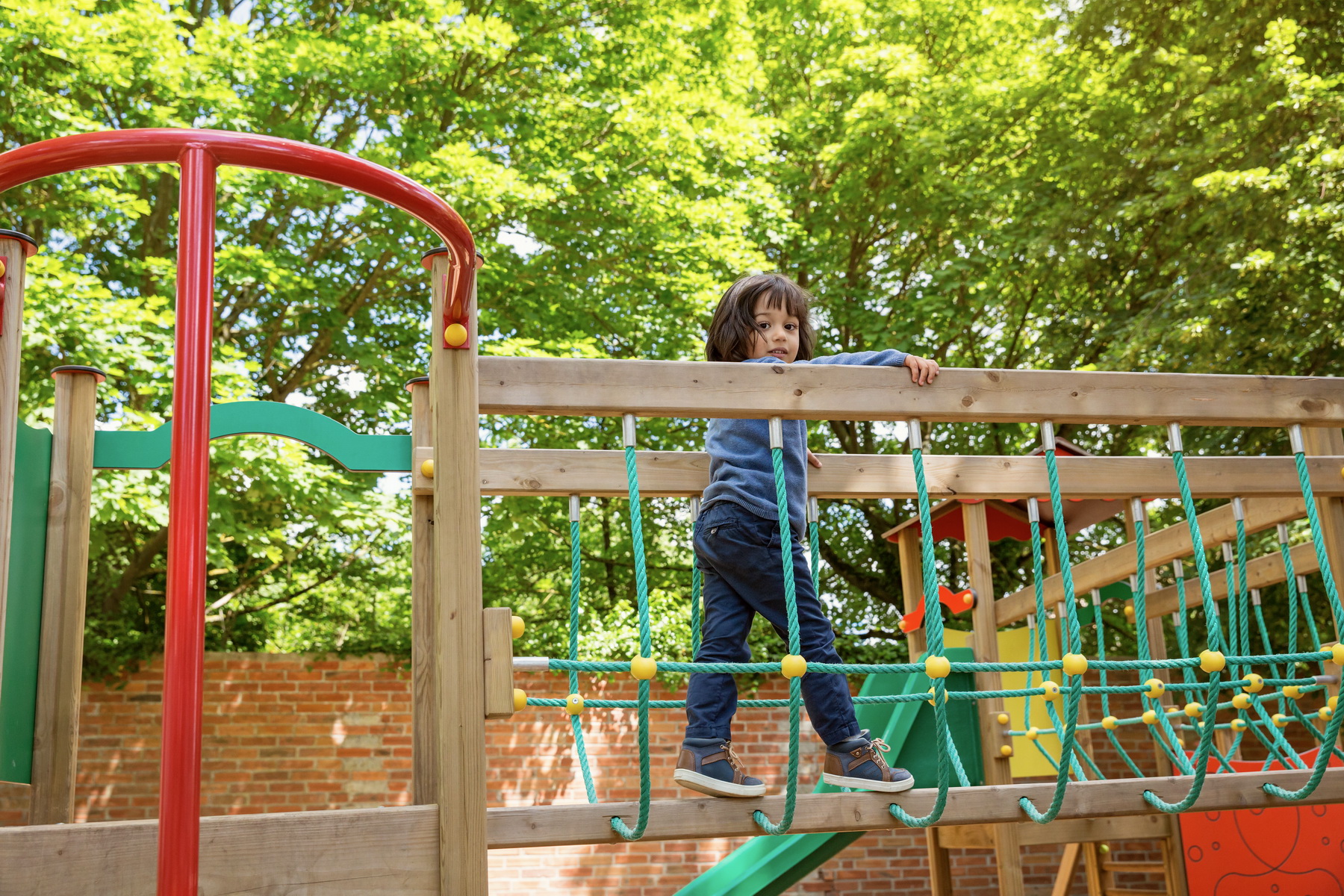Easy Sorting worksheets activities
4 filtered results
-
From - To
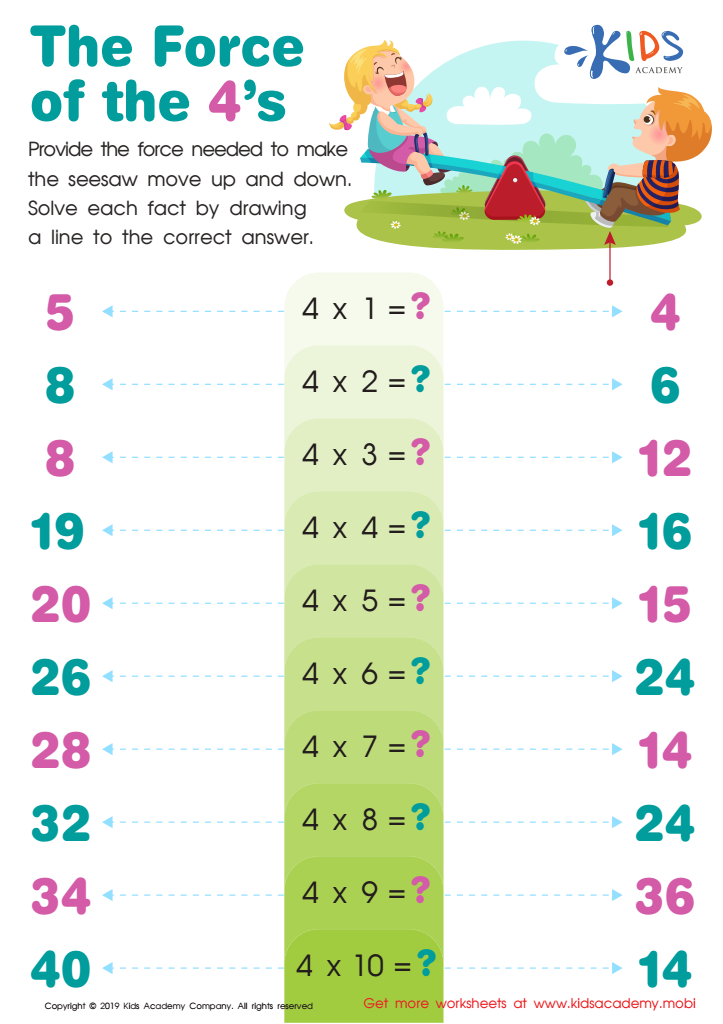

The Force of the 4's Worksheet
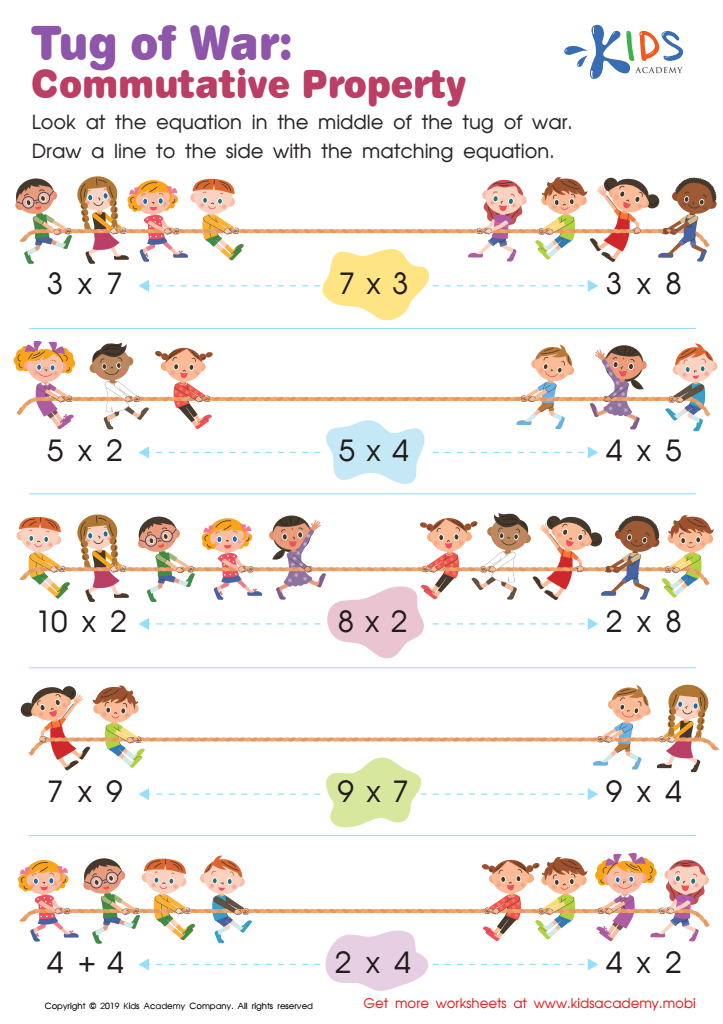

Tug of War: Commutative Property Worksheet
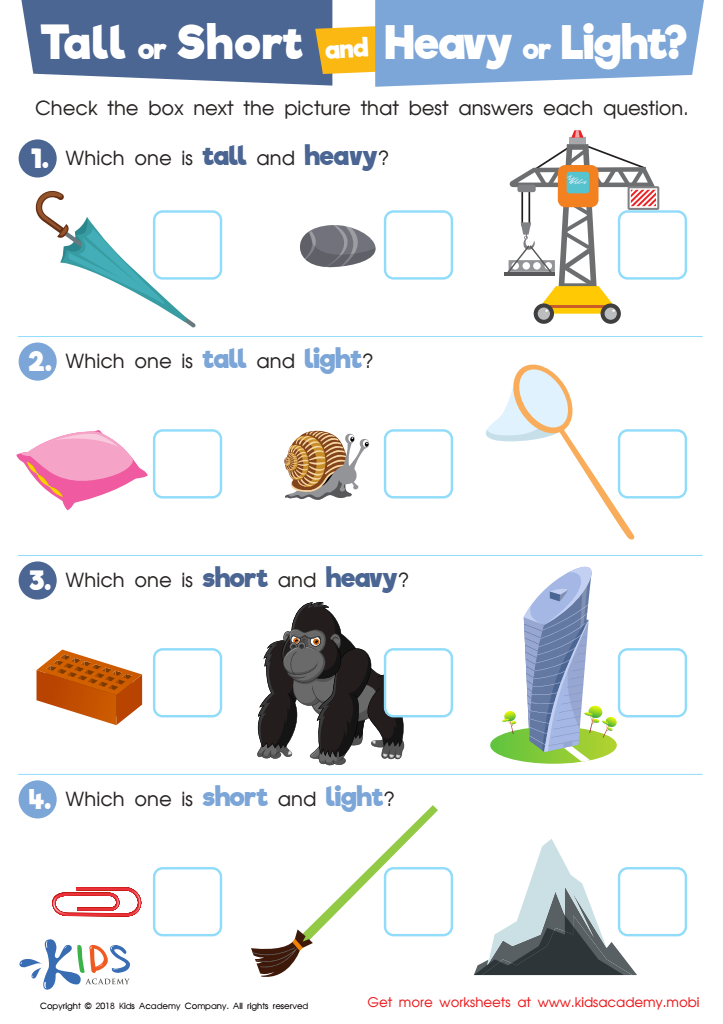

Tall or Short and Heavy or Light? Worksheet
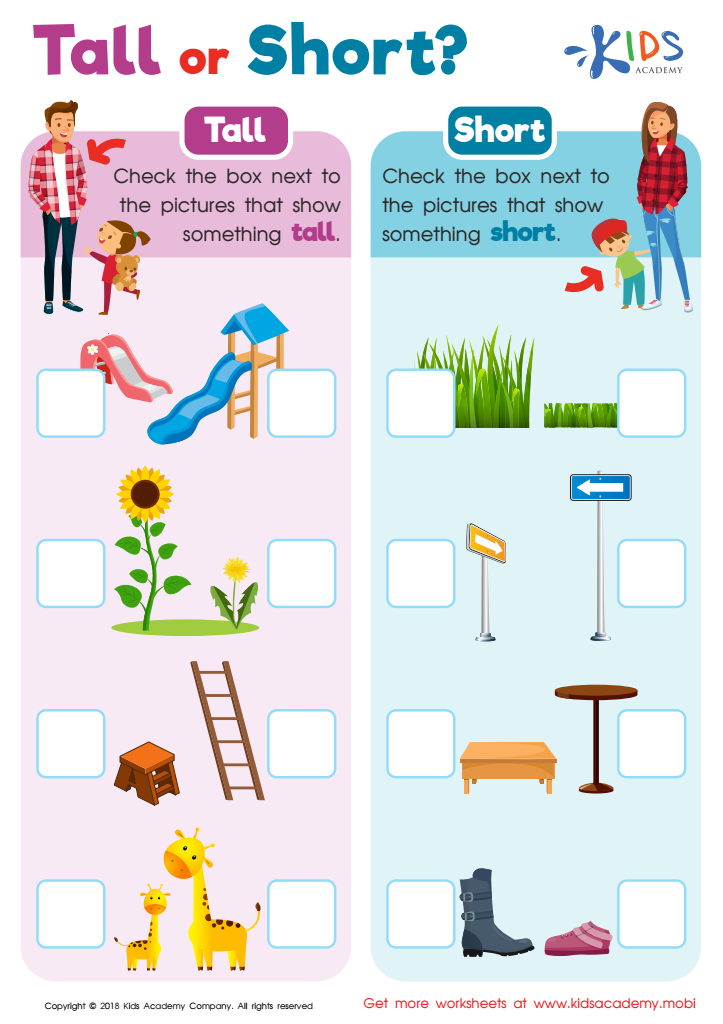

Tall or Short? Worksheet
Easy Sorting worksheets activities are an invaluable tool in the educational journey of young learners. These activities are designed to be engaging and accessible, making the process of learning both fun and effective. The simplicity and interactive nature of Easy Sorting worksheets make them a preferred choice for educators and parents alike, aiming to instill foundational skills in children at an early age.
One of the primary reasons why Easy Sorting worksheets activities are useful is their ability to enhance cognitive development. Through sorting, children learn to recognize patterns, similarities, and differences, which are critical skills in the development of logical thinking and problem-solving abilities. These worksheets encourage children to categorize objects or concepts based on size, shape, color, or type, fostering a deeper understanding and retention of information.
Moreover, Easy Sorting worksheets activities are instrumental in developing fine motor skills. As children engage with these activities, they practice holding and manipulating pencils or crayons, which is essential for writing. This hands-on approach also promotes hand-eye coordination, preparing them for more complex tasks in their educational journey.
Additionally, Easy Sorting worksheets offer a gentle introduction to mathematical concepts. Sorting is a fundamental math skill, laying the groundwork for understanding order, sets, and number sense. By starting with easy and enjoyable sorting activities, children build a positive relationship with math, reducing anxiety and resistance as they progress in their education.
Furthermore, Easy Sorting worksheets are adaptable to individual learning paces and styles. Whether a child learns better through visual cues, tactile engagement, or repetition, these activities can be customized to meet their unique needs, ensuring a more personalized and effective learning experience.
In summary, Easy Sorting worksheets activities are a cornerstone in early education, offering a blend of cognitive, motor, and mathematical skill development. Their simplicity, adaptability, and engaging nature make them an essential tool in fostering a love for learning and a strong educational foundation in young learners.
 Assign to My Students
Assign to My Students




